Audi Q7 VS Nissan Leaf
Audi Q7
The Audi Q7 combines luxurious comfort with impressive versatility, making it a standout choice in the SUV market. Its sophisticated design and meticulous attention to detail create an elegant yet robust presence on the road. With advanced technology and a focus on safety, the Q7 ensures a premium driving experience for both the driver and passengers.
more informationNissan Leaf
The Nissan Leaf stands out as a pioneering model in the realm of electric vehicles, known for its impressive blend of practicality and eco-friendliness. It offers a smooth and quiet driving experience, making it an ideal choice for city commuting and longer journeys alike. The interior design is both comfortable and intuitive, providing drivers with a sense of modernity and ease of use.
more information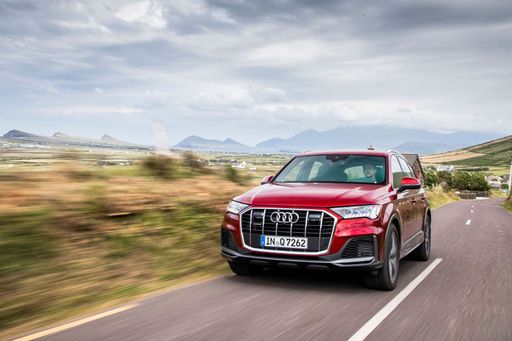 @ audi-mediacenter.com
@ audi-mediacenter.com
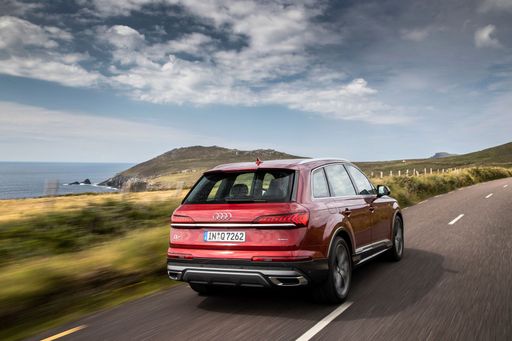 @ audi-mediacenter.com
@ audi-mediacenter.com
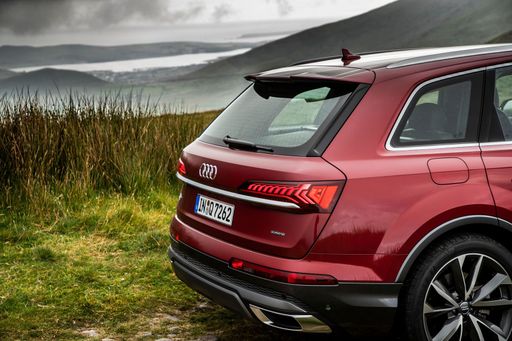 @ audi-mediacenter.com
@ audi-mediacenter.com
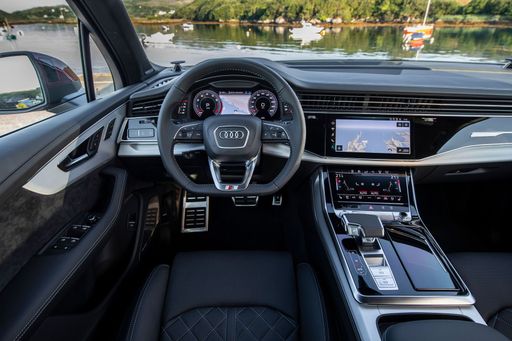 @ audi-mediacenter.com
@ audi-mediacenter.com
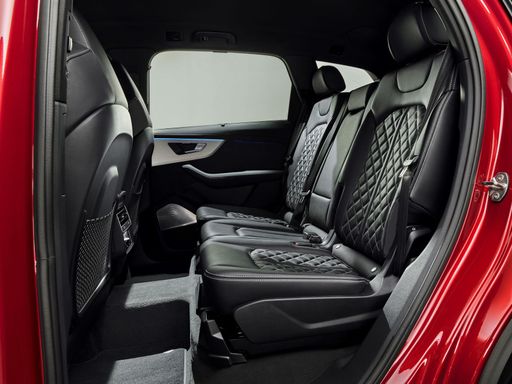 @ audi-mediacenter.com
@ audi-mediacenter.com
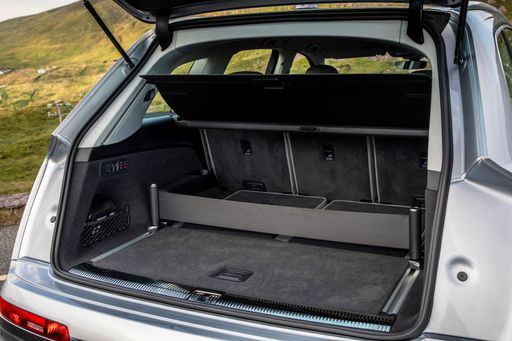 @ audi-mediacenter.com
@ audi-mediacenter.com
 @ germany.nissannews.com
@ germany.nissannews.com
 @ germany.nissannews.com
@ germany.nissannews.com
 @ germany.nissannews.com
@ germany.nissannews.com
 @ germany.nissannews.com
@ germany.nissannews.com
Costs and Consumption |
|
|---|---|
|
Price
about 73300 - 104900
$
|
Price
about 33200 - 40100
$
|
|
Consumption L/100km
1.2 - 12
L
|
Consumption L/100km
-
|
|
Consumption kWh/100km
-
|
Consumption kWh/100km
16.7 - 17.8
kWh
|
|
Electric Range
83 - 84
km
|
Electric Range
270 - 385
km
|
|
Battery Capacity
22
kWh
|
Battery Capacity
39 - 59
kWh
|
|
co2
28 - 272
g/km
|
co2
0
g/km
|
|
Fuel tank capacity
75 - 85
L
|
Fuel tank capacity
-
|
Dimensions and Body |
|
|
Body Type
SUV
|
Body Type
Hatchback
|
|
Seats
5 - 7
|
Seats
5
|
|
Doors
5
|
Doors
5
|
|
Curb weight
2055 - 2460
kg
|
Curb weight
1580 - 1756
kg
|
|
Trunk capacity
563 - 887
L
|
Trunk capacity
385 - 394
L
|
|
Length
5072
mm
|
Length
4490
mm
|
|
Width
1970
mm
|
Width
1788
mm
|
|
Height
1703 - 1735
mm
|
Height
1540 - 1545
mm
|
|
Payload
640 - 885
kg
|
Payload
384 - 415
kg
|
Engine and Performance |
|
|
Engine Type
Diesel MHEV, Plugin Hybrid, Petrol MHEV, Petrol
|
Engine Type
Electric
|
|
Transmission
Automatic
|
Transmission
Automatic
|
|
Transmission Detail
Automatic Gearbox
|
Transmission Detail
Reduction Gearbox
|
|
Drive Type
All-Wheel Drive
|
Drive Type
Front-Wheel Drive
|
|
Power HP
231 - 507
HP
|
Power HP
150 - 217
HP
|
|
Acceleration 0-100km/h
4.1 - 7.1
s
|
Acceleration 0-100km/h
6.9 - 7.9
s
|
|
Max Speed
226 - 250
km/h
|
Max Speed
144 - 157
km/h
|
|
Torque
500 - 770
Nm
|
Torque
320 - 340
Nm
|
|
Number of Cylinders
6 - 8
|
Number of Cylinders
-
|
|
Power kW
170 - 373
kW
|
Power kW
110 - 160
kW
|
|
Engine capacity
2967 - 3996
cm3
|
Engine capacity
-
|
|
Top speed
226 - 250
km/h
|
Top speed
144 - 157
km/h
|
General |
|
|
Model Year
2024
|
Model Year
2019
|
|
CO2 Efficiency Class
G, B
|
CO2 Efficiency Class
A
|
|
Brand
Audi
|
Brand
Nissan
|
Audi Q7
Audi Q7: A Benchmark in Automotive Excellence
The Audi Q7 continues to hold its ground as a versatile and luxurious SUV, offering a rich blend of cutting-edge technology, impressive performance, and comfort. With its recent facelift, the Q7 introduces innovative elements that cater to modern-day driving demands. Explore the technical details and unique attributes that make the Audi Q7 a class leader.
Engine Options and Performance
The Audi Q7 is available with a range of engine options designed to suit various needs and preferences. These include Diesel Mild-Hybrid, Plug-in Hybrid, and Petrol Mild-Hybrid configurations. The power output for these engines ranges from 231 to an exhilarating 507 PS, catering to both efficiency seekers and performance enthusiasts. The Audi Q7 can accelerate from 0 to 100 km/h in as little as 4.1 seconds, showcasing its athletic performance.
Innovative Technology Integration
The Audi Q7 integrates the latest technological advancements to enhance the driving experience. The intuitive Audi Virtual Cockpit and a comprehensive infotainment system ensure that the driver remains informed and entertained. The vehicle’s mild-hybrid systems significantly improve fuel efficiency and reduce emissions, highlighting Audi’s commitment to sustainability without sacrificing performance.
Advanced Safety and Driver Assistance
The Q7 is equipped with state-of-the-art safety features and driver assistance systems to ensure peace of mind on the road. Audi Pre Sense, adaptive cruise control, lane-keeping assist, and a 360-degree camera system work seamlessly together to help prevent accidents and enhance the driving experience.
Design and Interior Comfort
With its bold, sophisticated design, the Audi Q7 is both robust and stylish. The SUV offers configurations for five to seven seats, making it adaptable for families and groups. Meticulously crafted materials, adjustable seating, and advanced climate control systems provide a comfortable environment, even on long journeys.
Environmental Efficiency
The Audi Q7’s environmentally conscious engineering includes models with CO2 emissions as low as 28 g/km. For those opting for the Plug-in Hybrid variant, an impressive electric range of up to 84 km ensures emission-free mobility for daily commutes, reinforcing Audi's commitment to a sustainable future.
Conclusion
The Audi Q7 embodies a sophisticated blend of power, technology, and luxury, making it a standout in its class. Whether you’re looking for a spacious family vehicle, a tech-savvy companion, or a robust performance SUV, the Q7 delivers at every front, proving why it remains a popular choice for discerning drivers.
Nissan Leaf
Introduction to the Nissan Leaf: A Pioneer in Electric Mobility
The Nissan Leaf has established itself as a trailblazer in the realm of electric vehicles (EVs) since its launch. As we delve into its present-day iterations, the Leaf continues to soar in popularity due to remarkable advancements in technology and sustainability. Let's explore what makes the Nissan Leaf a standout in today's automotive market.
Power and Performance: Under the Hood of the Nissan Leaf
The Nissan Leaf boasts a power output ranging from 150 to 217 PS, depending on the battery option chosen. The vehicle's electric motor, a product of cutting-edge engineering, offers instant torque ranging from 320 to 340 Nm, resulting in impressive acceleration capabilities. The 0 to 100 km/h dash is achieved in as little as 6.9 seconds, showcasing its prowess in electric performance.
Battery Technology: Efficient Energy Management
When discussing the Nissan Leaf, battery technology is at the forefront. The available battery capacities range from 39 to 59 kWh, supporting an electric range between 270 to 385 km. This flexibility allows drivers to choose a model that best fits their driving habits, providing peace of mind for longer journeys without frequent recharging.
Sustainability: The Environmental Edge
One of the primary attractions of the Nissan Leaf is its commitment to sustainability. As an all-electric vehicle, it produces zero CO2 emissions, placing it in the top tier of the CO2-efficiency class with an 'A' rating. This clean energy approach contributes significantly to reducing environmental impact and supports Nissan's drive towards a greener future.
Design and Comfort: Aesthetic Appeal and Practicality
The Nissan Leaf is not just about efficiency; it's also designed for comfort and utility. With its sleek hatchback body and dimensions of 4490 mm in length, 1788 mm in width, and a height of up to 1545 mm, it offers ample interior space. The boot capacity ranges from 385 to 394 litres, providing sufficient storage for everyday needs. The model accommodates five passengers comfortably, ensuring a pleasant ride for everyone.
Innovations and Safety: Advanced Features for Peace of Mind
Nissan equips the Leaf with an array of intelligent features that enhance safety and convenience. The available equipment lines, including N-CONNECTA, Tekna, e+ N-CONNECTA, and e+ Tekna, offer varying levels of technology integration. ProPILOT Assist, e-Pedal, and a comprehensive suite of driver-assistance technology are just a few examples that highlight Nissan's commitment to innovation in the EV market.
Conclusion: The Nissan Leaf Continues to Lead
With prices ranging from €35,900 to €43,400, the Nissan Leaf remains an attractive choice for those looking to embrace electric mobility. It perfectly balances performance, design, and sustainability, making it a compelling choice in the competitive EV landscape. The Nissan Leaf not only represents the future of driving but also reinforces why it continues to be a leader in the electric vehicle community.
